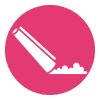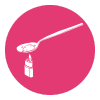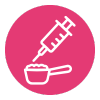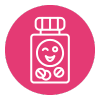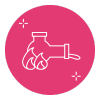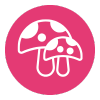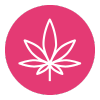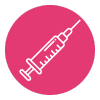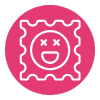
Written by:

Medically Reviewed by:
Last Updated:
January 22nd, 2025
Drug withdrawal and detox
When you think of drug detox, you may imagine celebrities checking into an exclusive retreat after incriminating photos appear in the press. In fact, drug detox is an essential first step in the recovery process for those struggling with drug addiction and can be a truly life-changing experience. Drug detox provides a safe and medically supervised environment to manage the physical symptoms of drug withdrawal and help you overcome your dependence on drugs.
While drug withdrawal symptoms can be a scary prospect, with the right support from a professional drug detox clinic like Banbury Lodge, detox can provide the stable foundations needed for a successful recovery.
What is drug detox?
When you use drugs regularly, your brain becomes accustomed to their presence, and the brain’s chemistry changes. This change can lead to physical dependence where you need drugs to feel “normal”, and experience drug withdrawal symptoms if you try to stop.
Drug detox, also known as detoxification, is the process of removing drugs from your body and allowing it to heal and recover. Drug detox is typically the first step in the recovery process and will help you manage drug withdrawal symptoms to keep you comfortable and safe and prevent drug relapse.
The benefits of drug detox are numerous and include:
- Managing the physical symptoms of drug withdrawal
- Reducing the risk of complications during drug withdrawal
- Providing a safe and supportive environment for recovery
- Improving overall health and well-being
- Setting the stage for long-term recovery
What is medical drug detox?
Medical drug detox is an inpatient detoxification process that involves monitoring and managing drugs withdrawal symptoms in a controlled environment like Banbury Lodge. It is recommended for individuals who have been using drugs for an extended period and are likely to experience severe drug withdrawal symptoms. At Banbury Lodge, medical drug detox is provided by our experienced team of healthcare professionals who work together to ensure that the drug detox process is as safe and comfortable as possible.
Common symptoms of drug withdrawal
The symptoms and duration of withdrawal from drugs vary depending on factors including the substance being used, the duration of use and the individual’s overall health. However, common symptoms of drug withdrawal include:
- Anxiety
- Depression
- Irritability
- Insomnia
- Nausea
- Vomiting
- Diarrhoea
- Sweating
- Tremors
- Seizures
Generally, the first symptoms of withdrawal can occur within a few hours to a few days after the last use of the drug. Symptoms usually peak within a few days and then gradually subside over a period of one to two weeks but for some people, drug withdrawal can last months and require ongoing care and support).
The severity of drug withdrawal symptoms can also range from mild to severe, and in some cases, drug withdrawal can even be life-threatening. This is why it is so important to complete detox at a professional drug detox clinic like Banbury Lodge.
Drug detox at Banbury Lodge
At Banbury Lodge, we provide inpatient drug detox with individually tailored programmes to meet your specific needs. Inpatient drug detox will allow you to focus solely on your recovery and enable us to keep you as safe and comfortable as possible while you are withdrawing from drugs.
Upon admission to Banbury Lodge, you will be given a full medical assessment so we can get an exact picture of your overall health, the extent of your dependency and whether you are at risk of severe drug withdrawal symptoms and will require medical drug detox.
Alongside drug detox, you will also undergo drug rehab to help you manage the emotional and psychological aspects of dependency and develop coping strategies and skills to support long-term recovery.
At Banbury Lodge, we provide inpatient drug detox for a number of substances, including:
Cocaine detox
Cocaine detox is the process of safely managing withdrawal symptoms such as fatigue, depression, and strong cravings. This phase allows the body to eliminate the substance while stabilizing mood and energy levels. A structured detox is crucial for breaking the cycle of addiction and supporting long-term recovery.
Crack Cocaine detox
Crack cocaine detox addresses severe cravings, mood swings, and sleep disturbances that occur during withdrawal. This step helps individuals regain physical stability and manage the psychological effects of addiction. Proper detox is essential for breaking dependence and preventing relapse.
Heroin detox
Heroin detox is a critical phase for overcoming intense withdrawal symptoms such as nausea, muscle aches, and cravings. This process helps the body adjust to the absence of opioids, while managing discomfort and ensuring safety. Detox sets the foundation for long-term recovery. Click to learn more.
Ecstasy detox
Ecstasy detox focuses on managing withdrawal symptoms like anxiety, insomnia, and exhaustion. This process allows the body to clear toxins while restoring balance to mental and physical health. A thorough detox can ease the transition into recovery and reduce the risk of relapse.
Crystal Meth detox
Meth detox involves addressing physical and psychological symptoms like fatigue, depression, and agitation. This process allows individuals to clear methamphetamine from their system while restoring mental and physical balance. A carefully managed detox is key to recovery.
Hallucinogen detox
Hallucinogen detox involves managing psychological symptoms such as anxiety, mood swings, and lingering perceptual changes. Detox helps clear these substances from the body and stabilizes mental health. This step is essential for moving toward emotional and physical recovery.
Cannabis detox
Cannabis detox tackles symptoms such as irritability, insomnia, and increased cravings that occur after stopping use. This stage helps the body recalibrate and reduces dependence. Completing detox is an important step toward breaking the habit and achieving recovery.
Ketamine detox
Ketamine detox addresses symptoms like cravings, depression, and emotional instability. This stage allows the body to eliminate ketamine while helping individuals regain control over their mental and physical health. Detox is a necessary step for sustained recovery.
LSD detox
LSD detox focuses on stabilizing mood, managing psychological effects, and addressing any lingering symptoms from use. This phase helps clear the drug from the system and supports emotional well-being. A complete detox is vital for achieving long-term stability.
Why choose inpatient drug detox?
At Banbury Lodge, we provide all our clients with comprehensive inpatient drug detox programmes because we believe it has numerous benefits compared to outpatient detox. These include:
Common fears about drug detox
Undergoing drug detox can be a frightening thought and this fear can prevent people from seeking the help they need. To help shine some light on what to expect from drug detox, here are some common fears and the truth behind them:
Painful drug withdrawal symptoms
Some people are afraid that withdrawal from drugs may be too painful for them to cope with. However, while some drug withdrawal symptoms can be uncomfortable, the medical professionals at a drug detox clinic like Banbury Lodge can help manage them so you have as little discomfort as possible.
Being judged in drug detox
Another common fear is being judged by the staff or other clients at drug detox. At Banbury Lodge, we offer a safe and non-judgmental environment where you can feel supported throughout the entire drug detox process. Our team of medical professionals and therapists are highly trained and experienced in drug detox treatment and understand that our clients require compassion and understanding.
Relapsing or failing
Many people also worry that they will not succeed in drug detox and they will relapse as soon as they leave the clinic. While relapse is a possibility, our team will work with you to create an aftercare plan to ensure that you have the support they need to stay sober.
How to help a loved one during drug detox
When a loved one is going through drug detox, it can be a challenging and emotional time for both them and their family and friends. Here are some tips for supporting your loved one during this process:
Educate yourself about the drug detox process
The more you know about dependency and the drug detox process, the better equipped you will be to support your loved one. You can research the process online, speak to our admissions team with your loved one and attend family support therapy and conjoint sessions while they are at Banbury Lodge.
Be available to listen and offer support
Your loved one may need someone to talk to during their drug detox so try to be available to listen and provide your support. Avoid being judgmental or critical and let your loved one know that you are there for them and that you care about their well-being.
Offer to help with practical tasks
During inpatient drug detox, your loved one may need assistance with practical tasks, such as childcare or housework. Helping with these tasks can take some of the pressure off your loved one and enable them to focus on their recovery.
Celebrate their successes and milestones in recovery
Detoxing from drugs is a challenging journey and it’s essential to celebrate your loved one’s successes and milestones along the way. Encourage them to acknowledge their progress, whether it’s being clean for a certain amount of time or completing a step in their recovery plan because this will help them stay motivated and positive.
How to get started with drug detox
If you or a loved one is struggling with drug dependency then Banbury Lodge can help. Get in touch with us today and we can explain more about how our individualised drug detox programmes can provide the ideal foundations for successful recovery. Our team of experienced professionals is ready to answer any questions you have and provide all the support you need.


